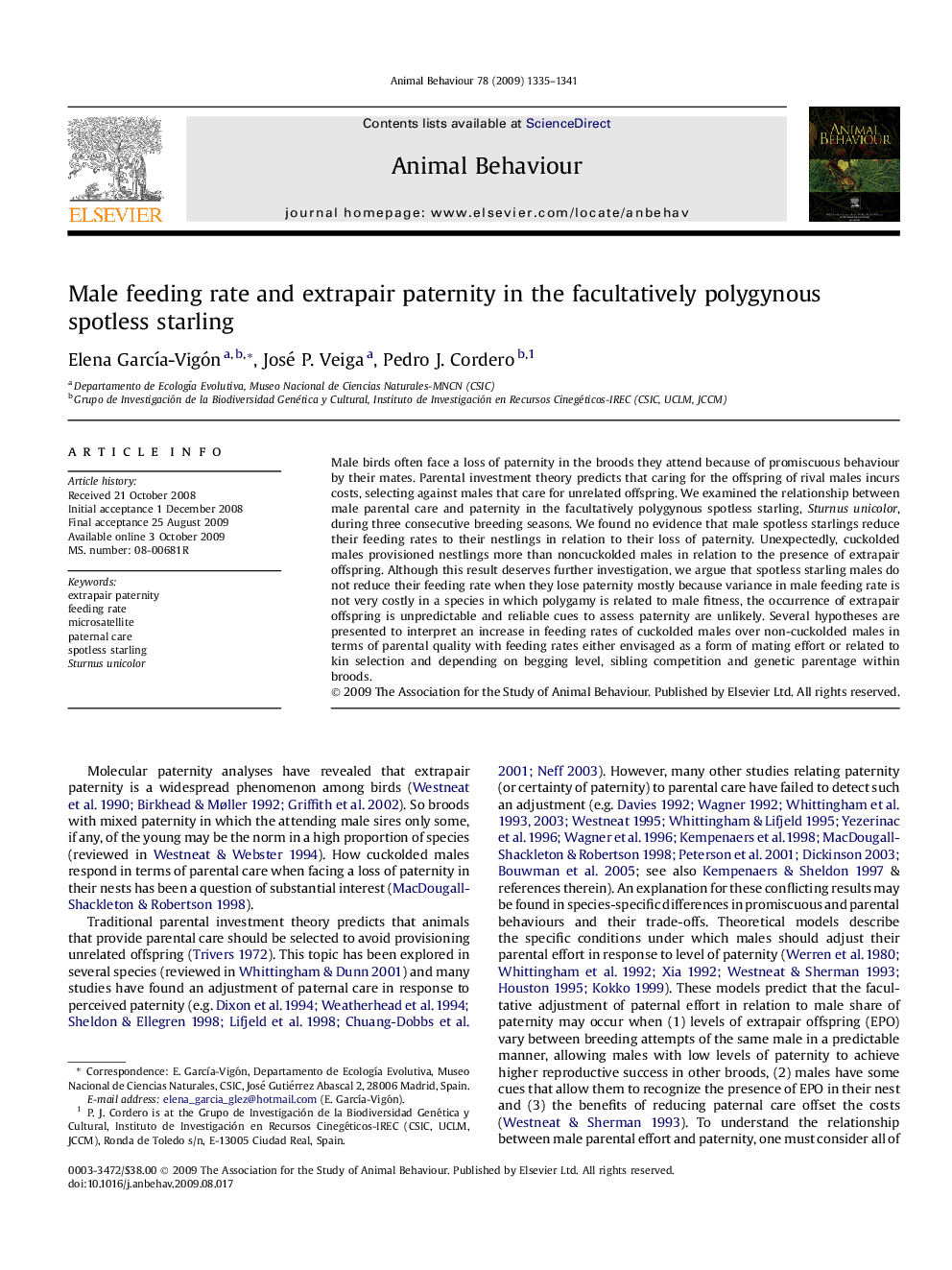| Article ID | Journal | Published Year | Pages | File Type |
|---|---|---|---|---|
| 2417544 | Animal Behaviour | 2009 | 7 Pages |
Male birds often face a loss of paternity in the broods they attend because of promiscuous behaviour by their mates. Parental investment theory predicts that caring for the offspring of rival males incurs costs, selecting against males that care for unrelated offspring. We examined the relationship between male parental care and paternity in the facultatively polygynous spotless starling, Sturnus unicolor, during three consecutive breeding seasons. We found no evidence that male spotless starlings reduce their feeding rates to their nestlings in relation to their loss of paternity. Unexpectedly, cuckolded males provisioned nestlings more than noncuckolded males in relation to the presence of extrapair offspring. Although this result deserves further investigation, we argue that spotless starling males do not reduce their feeding rate when they lose paternity mostly because variance in male feeding rate is not very costly in a species in which polygamy is related to male fitness, the occurrence of extrapair offspring is unpredictable and reliable cues to assess paternity are unlikely. Several hypotheses are presented to interpret an increase in feeding rates of cuckolded males over non-cuckolded males in terms of parental quality with feeding rates either envisaged as a form of mating effort or related to kin selection and depending on begging level, sibling competition and genetic parentage within broods.
